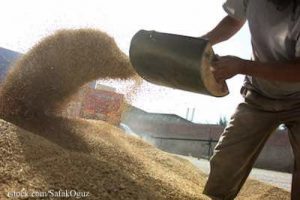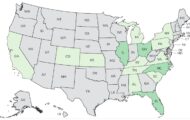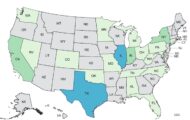>On September 30, 2013, the Food and Drug Administration responded to a Center for Food Safety petition, calling for the immediate withdrawal of the “vast majority of arsenic-containing compounds used as feed additives for chicken, turkeys and hogs.” A lawsuit filed by that agency, along with the Institute for Agriculture and Trade Policy, Food & Water Watch, Center for Environmental Health, and Health Care Without Harm, among others, compelled the response.
 FDA is going to withdraw three of the four arsenicals and all drug approvals related to those compounds. That means of the 101 drug approvals for arsenic-based products, 98 will be withdrawn. Paige Tomaselli, senior attorney with the Center for Food Safety, said in a statement, “the withdrawal of these harmful feed additives is a major victory for consumers and the health of our food system. It is unfortunate that legal pressure from outside groups was necessary to spur action by FDA, yet in the end, we are pleased that FDA listened to our scientific objections and is now working to rid arsenic from our meat supply.”
FDA is going to withdraw three of the four arsenicals and all drug approvals related to those compounds. That means of the 101 drug approvals for arsenic-based products, 98 will be withdrawn. Paige Tomaselli, senior attorney with the Center for Food Safety, said in a statement, “the withdrawal of these harmful feed additives is a major victory for consumers and the health of our food system. It is unfortunate that legal pressure from outside groups was necessary to spur action by FDA, yet in the end, we are pleased that FDA listened to our scientific objections and is now working to rid arsenic from our meat supply.”
Arsenic is a heavy metal that can cause stomach pain, numbness in the hands and feet, partial paralysis, and blindness. Inorganic arsenic is classified as a human carcinogen and has been linked to cancer of the bladder, lungs, skin, kidney, nasal passages, liver, and prostate.
The compound is added to poultry feed to force chickens gain weight faster on less food, and to create the appearance of healthy color in the meat from hogs, turkeys, and chickens. Recent studies have found that organic arsenic, which is non-carcinogenic, can be transformed into carcinogenic inorganic arsenic in animal tissue.
Arsenic was first approved as an animal feed in the United States in the 1940s. It was never approved for use in Europe, Japan, and other countries. To read a report on how to avoid arsenic in chicken, visit the Institute for Agriculture and Trade Policy.




